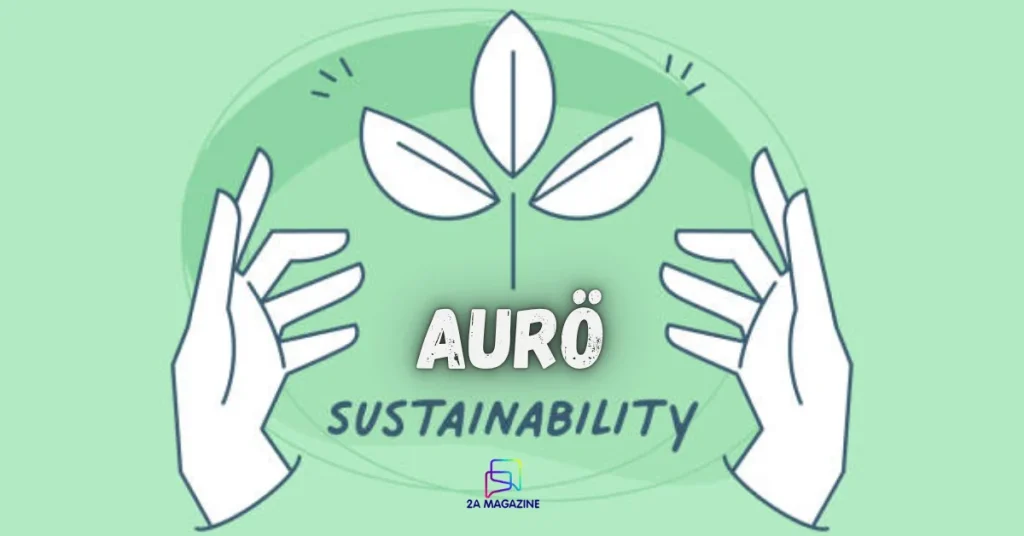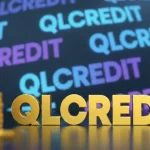Introduction to Aurö and its mission
Germany is on a transformative journey towards sustainability, and at the forefront of this movement is Aurö. This innovative organization is committed to redefining how we think about resources in our economy. By promoting resource wisdom, Aurö aims not just to create a greener future but also to foster economic resilience through intelligent management of materials and energy.
Imagine a world where businesses operate efficiently without depleting natural resources. Where waste becomes a thing of the past and every product has an extended lifecycle. That’s the vision Aurö embodies—a sustainable economy that thrives while respecting the planet. Join us as we explore how this visionary initiative is shaping Germany’s sustainable landscape, influencing industries across the board, and paving the way for long-term change in our economic practices.
The concept of resource wisdom and its impact on the economy
Resource wisdom embodies the intelligent and mindful use of resources. It emphasizes understanding the lifecycle of materials, aiming for efficiency and sustainability.
This concept encourages businesses to optimize their resource consumption. By doing so, they can significantly reduce waste while improving productivity.
The economic impact is profound. Companies that adopt resource wisdom often find themselves lowering operational costs. They can also enhance their market competitiveness by appealing to eco-conscious consumers.
Moreover, this approach fosters innovation as firms seek new methods to utilize existing resources effectively. It creates a ripple effect throughout industries, motivating others to follow suit.
Integrating resource wisdom helps pave the way toward a more resilient economy—one that values sustainability alongside profitability.
The current state of Germany’s sustainable economy
Germany’s sustainable economy is at a pivotal juncture. As one of Europe’s leading economies, it has made significant strides in renewable energy and waste reduction. The country is transitioning away from fossil fuels, with ambitious targets set for carbon neutrality by 2045.
However, challenges remain. The reliance on traditional industries poses hurdles for full-scale sustainability adoption. While investments in green technologies are rising, many businesses struggle to integrate these practices effectively.
Public awareness about environmental issues has soared. Citizens increasingly demand eco-friendly products and services, pushing companies to rethink their operations.
Government policies also play a crucial role. Initiatives supporting research and innovation aim to boost the circular economy, yet implementation varies across regions and sectors.
Germany stands as a case study in balancing economic growth with ecological responsibility—an ongoing journey that continues to evolve amidst global pressures.
How Aurö is promoting resource wisdom in different industries
Aurö is at the forefront of promoting resource wisdom across various industries. By providing tailored strategies, they help businesses rethink how they utilize materials and energy.
In manufacturing, Aurö encourages companies to adopt circular economy principles. This means reusing waste products and reducing reliance on virgin resources. The results are often remarkable—lower costs and reduced environmental impact.
The tech sector benefits too. Aurö collaborates with startups to design sustainable products from inception. Their focus on eco-friendly materials helps reduce e-waste significantly.
Even in agriculture, Aurö’s influence is felt. They guide farmers toward regenerative practices that restore soil health while maximizing yields.
By bridging knowledge gaps between sectors, Aurö fosters collaboration and innovation. Their approach inspires a culture where sustainability becomes integral to business operations rather than an afterthought.
Success stories of companies implementing resource wisdom with Aurö’s help
One notable success story involves a mid-sized textile company that partnered with Aurö to enhance its resource management. By assessing their supply chain, Aurö introduced innovative practices that reduced water usage by 30%. This not only cut costs but also positioned the company as an eco-friendly leader in the industry.
Another example is a tech startup focused on electronics recycling. With Aurö’s guidance, they developed a closed-loop system for materials recovery. As a result, they diverted 80% of waste from landfills and significantly lowered production costs.
Additionally, a food manufacturer embraced sustainable packaging solutions through Aurö’s expertise. Their transition led to an impressive increase in customer loyalty and brand reputation while minimizing environmental impact.
These stories illustrate how resource wisdom can transform operations across diverse sectors, making sustainability both feasible and profitable for businesses in Germany.
Challenges and obstacles faced by Aurö in promoting sustainable practices
Aurö faces a variety of challenges while advocating for sustainable practices. One significant hurdle is the resistance from traditional industries. Established companies often hesitate to adopt new methods, fearing disruption to their existing operations.
Funding can also be an obstacle. Many innovative sustainability projects require substantial investment upfront, which some businesses are unwilling or unable to commit. This financial reluctance slows down the adoption of resource wisdom.
Additionally, raising awareness about the importance of sustainability remains a challenge. Many consumers and business leaders still prioritize short-term gains over long-term environmental benefits.
Regulatory barriers add another layer of complexity. Navigating bureaucratic processes can be time-consuming and frustrating for Aurö as they seek to implement more efficient resource management strategies across sectors.
These obstacles create an uphill battle but highlight the need for ongoing education and collaboration in building Germany’s sustainable economy.
Future plans for Aurö and the potential impact on Germany’s economy
Aurö is poised to expand its reach across more industries in Germany. The organization aims to partner with emerging tech firms and traditional manufacturers alike, creating a bridge between innovation and sustainability.
With plans for workshops and training programs, Aurö will equip companies with the tools needed for adopting resource wisdom principles. This hands-on approach fosters a culture of sustainability that goes beyond compliance.
Moreover, by collaborating with governmental bodies, Aurö intends to influence policy changes that support sustainable practices on a larger scale. Such initiatives can pave the way for incentives that encourage businesses to invest in green technologies.
The potential impact on Germany’s economy is significant. As companies adopt resource wisdom strategies, they stand to reduce waste and optimize resources, ultimately leading to increased efficiency and profitability. This transformation may also enhance Germany’s reputation as a leader in sustainable development globally.
Conclusion
Aurö stands at the forefront of Germany’s shift towards a sustainable economy. With its innovative approach to resource wisdom, it is reshaping the way industries think about materials and processes. As more companies recognize the importance of sustainability, Aurö’s influence will only grow.
The impact of resource wisdom extends beyond individual businesses; it contributes significantly to broader economic stability and environmental health. The success stories emerging from Aurö’s collaborations illustrate that embracing sustainable practices is not just beneficial but essential for long-term viability.
Challenges remain on this path—be it resistance from traditional sectors or the need for widespread education on sustainability. However, Aurö’s commitment to fostering an understanding of these concepts ensures progress continues.
Looking ahead, Aurö aims to expand its reach further across various industries while deepening partnerships with existing collaborators. By continuing to advocate for resource wisdom, they are poised to play a pivotal role in shaping not just Germany’s economy but also setting a precedent globally.
With each step forward, Aurö exemplifies how strategic thinking around resources can lead us toward a brighter future—a future where economic growth harmonizes with environmental stewardship and social responsibility.







